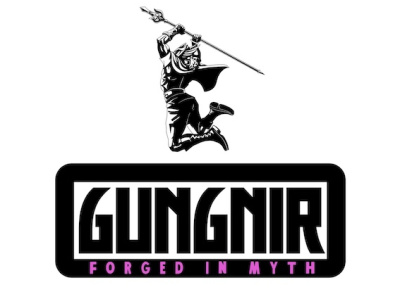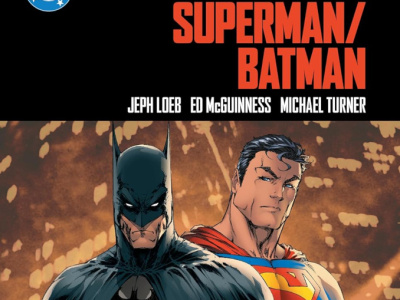
Fred Schodt is the translator of the Astro Boy series from Dark Horse (and the co-translator of Phoenix, from Viz, see 'Viz to Release Tezuka's Phoenix..'); but he is much more than a translator, he is an important conduit of Japanese culture to the English-speaking world. Schodt penned the groundbreaking study of the Japanese manga phenomenon, Manga, Manga, as well as subsequent books like Dreamland Japan and Inside the Robot Kingdom. Schodt was also a personal friend of Osamu Tezuka, whom he met in Japan and often accompanied when Tezuka came to America. He was the perfect choice to translate Astro Boy and to provide insights into the character and how this series relates to the larger world of Japanese manga.
Osamu Tezuka, the creator of Astro Boy, not only is considered the 'founding father' of modern Japanese manga, he was also one of its most prolific practitioners. How many comic series did he create? There are over 300 volumes in the Tezuka Collection that are published, I do know that. Each volume is between 180 and over 200 pages. He was enormously productive. It is estimated that within his lifetime he drew 150,000 pages of manga. He drew all the time.
How many genres of manga did he pioneer? Well he may not have pioneered them all, but he certainly fathered a good number of them. He helped start the whole field of women's comics or girl's comics in Japan, and he worked in adventure, and science fiction, but his biggest contribution was in showing the potential of the comics medium to depict anything so that when the next generation of artists came along, many of whom had been his assistants, or worked with his assistants, they were then able to explore using comics to depict virtually everything. In Japan today you have comic book explanations of the constitution, of the tax code, how to use a defense lawyer.
He came up with the 'grammar' of manga, the way to put the panels together to break down an action and depict it cinematically? He wasn't the only one to do that, but he pioneered that style, and that was one of his biggest contributions, to sort of decompress storylines from a more American or more compressed model and to use more pages and more panels to depict a sequence. He showed basically how it was possible to use comic books' format, the grammar of which, of course, originally came from the United States, to develop very complex characters and also tell very complex stories.
How many of Tezuka's manga stories are available in the U.S.? There are more and more all the time. I think right now, if you're talking about what is published in the United States in English, I think it's just a couple of volumes of Blackjack, Adolph, with Astro Boy and Phoenix coming out. There are however, other of his stories that have been published in English in Japan as part of a bilingual format targeted at the audience in Japan, whose native language is not English, but who are trying to read things in English that they are somewhat familiar with. I also did a book in English, Crime and Punishment, which was published in Japan in English, but that is unfortunately out of print.
You are actually translating both Astro Boy and Phoenix aren't you? Well, Phoenix, I actually translated with a friend of mine, Jared Cook, and it will come out as 'translated by Dadakai,' the name of our translation group. The translation of the Phoenix was actually done around 1977, so that's nearly 25 years old.
How many volumes are there in the Astro Boy series? It depends whether you count the supplemental volumes. There are 23 altogether that I have in the Shonen Sunday series. But there are many editions of Astro Boy, so each edition may have a different number of volumes depending on how many pages are incorporated in each volume.
Which edition are you using for the Dark Horse Astro Boy series? This is based on the Shonen Sunday version.
Will the Dark Horse Astro Boy look just like the original Japanese version from the 1950s? It's a little bit different. One of the things about Tezuka is that he often went back and revised things if he didn't like them -- so he cleaned up some of the images. One of the really nice things about the Shonen Sunday editions is that Tezuka prefaced many of the stories with himself as an interlocutor, so he introduces the story from the standpoint of nearly 30 years after they were created, and he often describes why he drew it in a certain way or what the context was in which it was created. It's really quite charming.
I know that Tezuka loved Disney cartoons and saw Bambi more than 80 times, but the visual style of Astro Boy reminds me more of the cartoons from the Fleischer Studio. Yes, I think that you can say that artistically in many ways in terms of character design, Fleischer was more of an influence on Tezuka than Disney. He was a huge fan of Disney, but in terms of his character designs you can see that many of the minor characters are like 'homages' to the Fleischer characters.
How does the Astro Boy manga series differ from the b/w Astro Boy anime series from the 1960s that many American fans remember so well? I think in two ways. One is that manga is generally capable of dealing with slightly more sophisticated themes because it has a slower pace, and it's also not group-produced the same way that anime is, and comic books have a little more freedom than broadcast television, whether it's in Japan or in the United States. So, right off the bat the anime tends to be more diluted in terms of the stories. Secondly, when the Japanese anime was 'localized' for the States, there were several things that were changed, so it's not just that character names are different and Japanese elements stripped out of the show, there were specific things that had to be changed because of American restrictions on content. Tezuka was upset at dealing with NBC and he talks about it in one of the introductions to the Shonen Sunday editions. The Americans thought some scenes were too violent and forced cuts. They were also skittish about the atomic power elements and downplayed Astro Boy's rear-mounted (literally) machine gun.
Tell us about 'Ambassador Atom' -- is that part of the canon? Is it part of the Dark Horse series? It's usually included in all the Japanese editions of Astro Boy stories. In the Shonen Sunday edition coming from Dark Horse, it actually appears in Volume #15, because in this series the volumes do not appear in the sequence in which they were originally authored. In Ambassador Atom, which is the first published story chronologically, Tezuka's style is different, because he was still developing. It has a much slower pacing for example, and the character of Astro Boy is really a minor figure.
Why did you decide to use the name Astro Boy rather than a more literal translation of Mighty Atom, with its connotations of atomic power, which certainly had a strong resonance in Japan (and in the U.S.)? That's a really good question. It's something I agonized over, and I actually left that open as an option for Dark Horse. Personally I felt the course of history is too strong, that it's too much to go up against, because the character is so well known in the United States now as 'Astro Boy.' But with the other characters, I have tried to retain their original Japanese names as much as possible. I think it was decision that was made by the force of history. It would be just too hard to go against it.
How closely does the origin story of Astro Boy, a robot created by a scientist mourning the loss of a son, parallel the plotline of Steven Spielberg's A.I.? Well the A.I. movie, which I saw, does have some very strong parallels to Astro Boy. I was quite struck by that when I saw the movie. I don't know whether Spielberg referred to Astro Boy or not, but there certainly are some parallels, particularly in regard to their origin.
Will the Dark Horse Series begin with the origin of Astro Boy? Yes, that's because the Dark Horse series is based on the Shonen Sunday series. Now the origin story isn't the first Astro Boy story; in fact the first published story in which Astro Boy appeared won't appear until Volume #15. The origin story was created long after Astro Boy's first appearance in Ambassador Atom, and it helped clarify the character and fill in some of the gaps in the narrative. There was a need to clarify the beginning of the story because of the anime, which came out in 1963. It was quite a while after Astro Boy's first appearance and over that time the origin story was more refined, so in this particular compilation, Tezuka thought it was important to start out with the origin story. Dr. Tenma lost his son in a car accident, and he created a robot son surrogate.
In addition to the origin story recalling A.I., I was also struck by the theme of Astro Boy battling discrimination against robots, which parallels the X-Men and their struggles against anti-mutant discrimination. Is this a major theme of the series? It's a very big theme. It's one of the more interesting parts of the Astro Boy story, because here you have this robot boy, who wants to become more human, but he is also very sympathetic with other robots who are being discriminated against, and many of the human characters, who are his guardians, are campaigning for the rights of robots. Astro Boy himself lived in a family of robots, with a robot father and mother, brother and sister -- so there's constantly a comparison with regular human society. There are certain restrictions on robots in the world that Tezuka created. They are not allowed to go overseas. There is a variety of restrictions on them -- things that Astro Boy has to navigate around.
How would you characterize the differences between Astro Boy and American superhero comics? Astro Boy is a superhero isn't he? Of all the characters Tezuka created, he is the one out-and-out superhero, but he has all the hallmarks of a Tezuka creation in that he sometimes fails, he agonizes, he is beset with problems. In many ways Astro Boy is very human, more human than any of the humans around him. He lives in a world where good and bad are fairly well-defined, but nonetheless there is a gray area, where good people do bad things and bad people occasionally do good things, and Astro Boy has to struggle to sort all this out, so in a way it's a much more realistic environment than I find in most of the American superhero comics I have read. There's more moral complexity; even though the Astro Boy series is one of the least morally complex of Tezuka's works, nonetheless it has this hallmark of his work.
Was Astro Boy the first Japanese robot character? There were pseudo-robot characters that appeared previous to Astro Boy, but he is arguably the first autonomous android robot figure in Japan. Right around the same time there was also another robot character creation that was not an autonomous robot. It was a remote-controlled robot. So there are these two streams of robot characters, one the autonomous android robot like Astro Boy, and the other one, the remote controlled robot, which later develops into the drivable robot in the Gundam and other series like that. But in Astro Boy in the secondary characters there are the models for the transforming robots, combining robots, and drivable robots, it's all there, but Astro Boy himself is an autonomous robot, and in that sense he is very human -- he can walk, he can think, but he is dependent on humans in that he needs regular refueling. He needs little pellets of uranium.
How does Astro Boy fit into the history of the pervasive robot culture of Japan? I wrote an entire book about the Japanese interest in robots called Inside the Robot Kingdom (it's out of print right now). The Japanese have long had a fascination with gadgets. They had 'automata' early in the past century, and more recently with industrial robots. So Astro Boy is just a part of all this. You could say that he established the genre of the cute, friendly robot pal, and planted the seed in children's minds that robots could be cute and friendly. There are actually many roboticists in Japan who say that Astro Boy had a huge influence on them in terms of what they are trying to develop. When I say 'robotocists' I not referring so much to people who work in industry as to those who are in research and development and who are trying to develop mobile, bipedal robots.
Tell us your impression of working on Astro Boy; does it still have the charm for you that it had when you first read it? It's still absolutely delightful and when I'm translating it, I am quite frankly enjoying it enormously. Part of the charm comes from the efforts of a man, some fifty years ago, trying to envision what our world is like -- after all Astro Boy was born on April 7, 2003, so Tezuka was writing nearly 50 years ago and he was trying to depict in this medium of entertainment that at the time was mainly for children -- he was trying to depict the world of today. Now he was drawing in an analog era and there are many things he couldn't have anticipated, but nonetheless, in the stories you can see some issues that he raises that are applicable today. For example his stories are filled with secret societies and evil gangs that use technology in evil ways -- and after Sept. 11, it's interesting to see how he envisioned a world with these kinds of problems.







